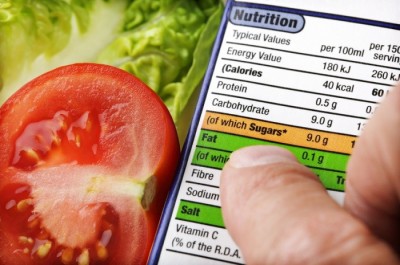 [1]We all like to know what we are buying. A can of tomato sauce should be made of nutrient-filled tomatoes and herbs, right? Well, sadly, shopping for healthy foods is not as simple as it should be.
[1]We all like to know what we are buying. A can of tomato sauce should be made of nutrient-filled tomatoes and herbs, right? Well, sadly, shopping for healthy foods is not as simple as it should be.
Here are 5 of the biggest food labeling lies I have learned to spot:
1. “All-natural” foods are all-natural.
When you pick up that “all-natural” snack at the supermarket, you may think you are purchasing an all-natural healthy food. Think again. Genetic modification does not legally have to be labeled on food in the U.S.
Approximately 90 percent of our corn, soybeans and canola are now genetically modified. Genetic modification is where a scientist replaces part of the plant genes with the genes of, for example, a fish. There have been no conclusive studies about the effects on the consumer, and we don’t know when something has been genetically modified or not, although progress is being made. The “Non-GMO Project” puts their stamp of approval on certain foods, and Whole Foods has pledged to require the labeling of GMO foods it carries by 2018.
Take a stand against this subversive behavior and make it a point to buy foods with the “certified organic” or “non-GMO” seal on them or not buy them at all.
2. Whole grain foods are always healthy.
When looking at the cereal aisle and deciding whether or not cereal is a healthy choice for your family, you may see a label that says “made with whole grains” on it. Aha! You just made a healthy choice, right? Sorry, think again. If you read the fine print you may discover it only contains trace amount of whole grain. Next time, don’t get tricked.
New Survival Seed Bank™ Lets You Plant A Full Acre Crisis Garden! [2]
Pay no attention to what the front of the package says and take the extra minute to look at the ingredient label. If “enriched bleached wheat flour” or “cane sugar” is an ingredient, steer clear of this rip-off. Your body will thank you for the extra time and care you take to find a cereal that is 100 percent whole grain. There is no need for cereal to have sugar, salt, colors or chemicals. You can always add extra flavor yourself at home with fruit, honey, or warm spices like cinnamon.
3. “Enriched” foods are better for us.
When looking for some flour to make cookies, you think to yourself, “I have seen some good-looking whole wheat cookie recipes lately. Maybe I should buy whole wheat flour this time.” But when you start looking at the packages, you notice that the whole wheat flour is not “enriched.” There are no added vitamins or minerals such as the “all-purpose flour” boasts. Before you change your mind, consider this: Whole wheat (whether it says it on the label or not) has as many vitamins and minerals as the enriched stuff.
Story continues below video
The only reason the white flour is enriched is because they stripped all the nutrients out of it while processing it to death and needed to add something considered “healthy” so that we would buy it. There is another problem: The nutrients that the flour has been enriched with did not come from grains. In fact, most of them did not come from food at all. Studies [3] show that vitamins and minerals from non-food sources are almost impossible for the human body to absorb.
4. “Pesticide-free” labels are legitimate.
We’ve been learning more and more about the toxins in commercial pesticides. Just one image of the field workers wearing what looks like space suits while spraying our food with chemicals is enough to make anyone think twice. But when we pick up food that says “pesticide free” on it, how do we know we can trust that claim to be true?
Make “Off-The-Grid” Super Foods Secretly In Your Home [4]
We can’t. The only label that can be trusted when it comes to pesticides is the “certified organic” seal. The claim “pesticide-free” is not monitored by anyone and can easily be a complete lie just to make money off of the uninformed consumer.
5. “Free-range” egg labels can be trusted.
It can get complicated when choosing eggs. If you’ve seen the facts about cooped-up chickens producing eggs like a factory, you may be willing to pay a little extra to get eggs from healthier chickens. But how do you really know how the chickens are treated? Free-range and cage-free both sound good, but sadly, the company could be completely lying to you. It may mean that chickens get to roam free once a week but are still cooped up most of the time. Do your research. The only way to be sure that the chickens are treated reasonably may be to buy eggs with the “certified humane” seal on the package – or to buy them from someone such as a neighbor you know and trust.
With all these lies circulating, we really are better off growing our own organic gardens, living off of whole fruits and vegetables, and paying extra attention to what we purchase.
What are other lies the food industry tells us? Leave your reply in the section below:
Get $600 Worth Of Survival Blueprints … Absolutely Free! [5]
